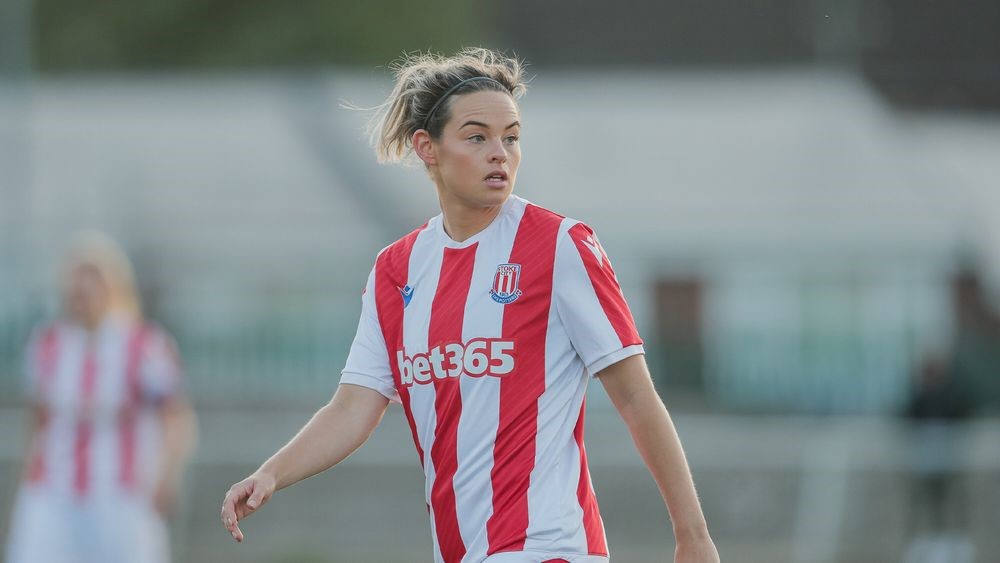Everyone deserves to have access to the beautiful game of football
Callan works in the Sense Active team, based in Birmingham. In her role, she supports disabled people to be more active, building lifelong habits and getting access to the sporting opportunities that everyone should have.
In this blog, she explains how exciting it is for her as a footballer to see everyone talking the Women’s World Cup, and the work she’s doing to bring inclusive football to Sense.
Football should be for everyone. In my role at Sense, I work hard to support people with complex disabilities to have the same access to sport that everyone else does.
As you can imagine – although it shouldn’t be – this is often a challenge, due to society’s lack of awareness of disabled people’s needs, as well as a general perception that disabled people can’t “do sport” in the same way non-disabled people can.
In my job, I tackle this kind of prejudice and bias on behalf of people we support all the time.
Outside of my job, I’ve also experienced something similar, as a woman competing in national football. The women’s game is rarely taken as seriously as the men’s, and I’ve faced a lot of barriers in my sporting career.
That’s why it’s been so inspiring to see the national women’s teams breaking down barriers on the world stage in the Women’s World Cup 2023.
My experience in football
Since the age of 16, I’ve played football semi-professionally, representing clubs including Birmingham City, Coventry City, Derby County and most recently, Stoke City.

It’s not been easy to juggle the commitment of training and playing three or four times a week and sacrificing weekends to travel round the country. But my love and passion for the game has kept me going. That being said, it hasn’t always been a positive experience.
In some ways, the women’s game has changed significantly over the past 15 year. For example, players are finally being paid for their time. In my earlier years, I had several experiences of being left out of pocket by representing my club.
There have been times when I’ve had to wear kit which didn’t fit, handed down from men’s teams, and played at sub-standard facilities because men’s teams had priority.
It often felt like we should be grateful for anything we got. We were treated like an afterthought rather than an important part of the overall football club.
It’s promising to see the shift that has occurred in recent years – women’s sport is now being appreciated in its own right. It’s even capturing the attention of the mainstream media.
What women’s football can teach us all about inclusion
Of course, one thing I haven’t had to face as a barrier to football personally is ableism. But I see it happen to the people that I work with at Sense all the time. Ableist beliefs about what disabled people “can” or “can’t” do present a huge block to getting involved in sports.
We know that disabled people are twice as likely as non-disabled people to be physically inactive (Sport England, Active Lives Adult Survey, Nov 20-21).
By focusing on each person’s individual needs and strengths, Sense breaks down these barriers for disabled people like Franklyn, who we supported to feel confident enough to take part in climbing.
At Sense, we realise that people with complex disabilities can find it challenging to engage in football, in its traditional format. But that doesn’t mean it’s totally off limits.
That’s why we created Sensory Football. In this format, we break the beautiful game down into its component parts, making it fun and meaningful for people with complex needs.
For example, scoring a goal is a chance for the whole team to celebrate a shared success. In the Women’s World Cup, this might look like a striker kicking the ball into the net and running away to celebrate with their teammates.
In sensory football, we could create this sense of collective achievement and celebration by rolling or carrying a ball through a “goal” of the player’s choice, and waving colourful ribbons in the air with others to celebrate.
Join our next inclusive football event
The Women’s World Cup has been a reminder for us all that sport is for everyone. It’s amazing to see people everywhere celebrating the women’s national teams.
At Sense’s inclusive football event at Sense TouchBase Pears on August 7, we celebrated the Women’s World Cup in style. In partnership with local provider Inclusive Sports Academy, we held an afternoon of fun football games for young disabled children and their siblings.
It all ended with a penalty shoot-out – giving everyone the opportunity to experience the elation of the ball hitting the back of the net!
Now is the perfect time for everyone, whether you’re a man or woman, disabled or non-disabled, to get behind “sport for all”. Help change negative perceptions and stereotypes.
Everyone – regardless of their sex, race or disability – deserves both the opportunity and the confidence to take part in the beautiful game, whatever way works for them.

